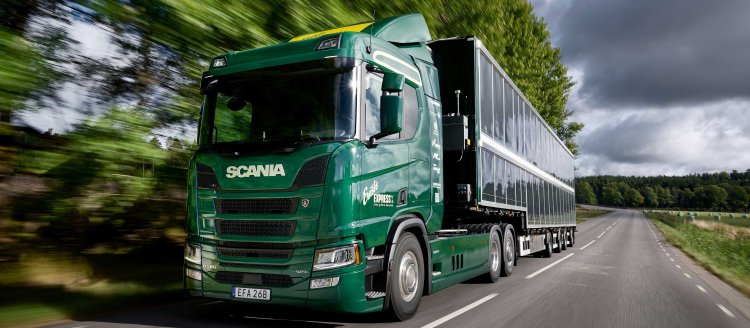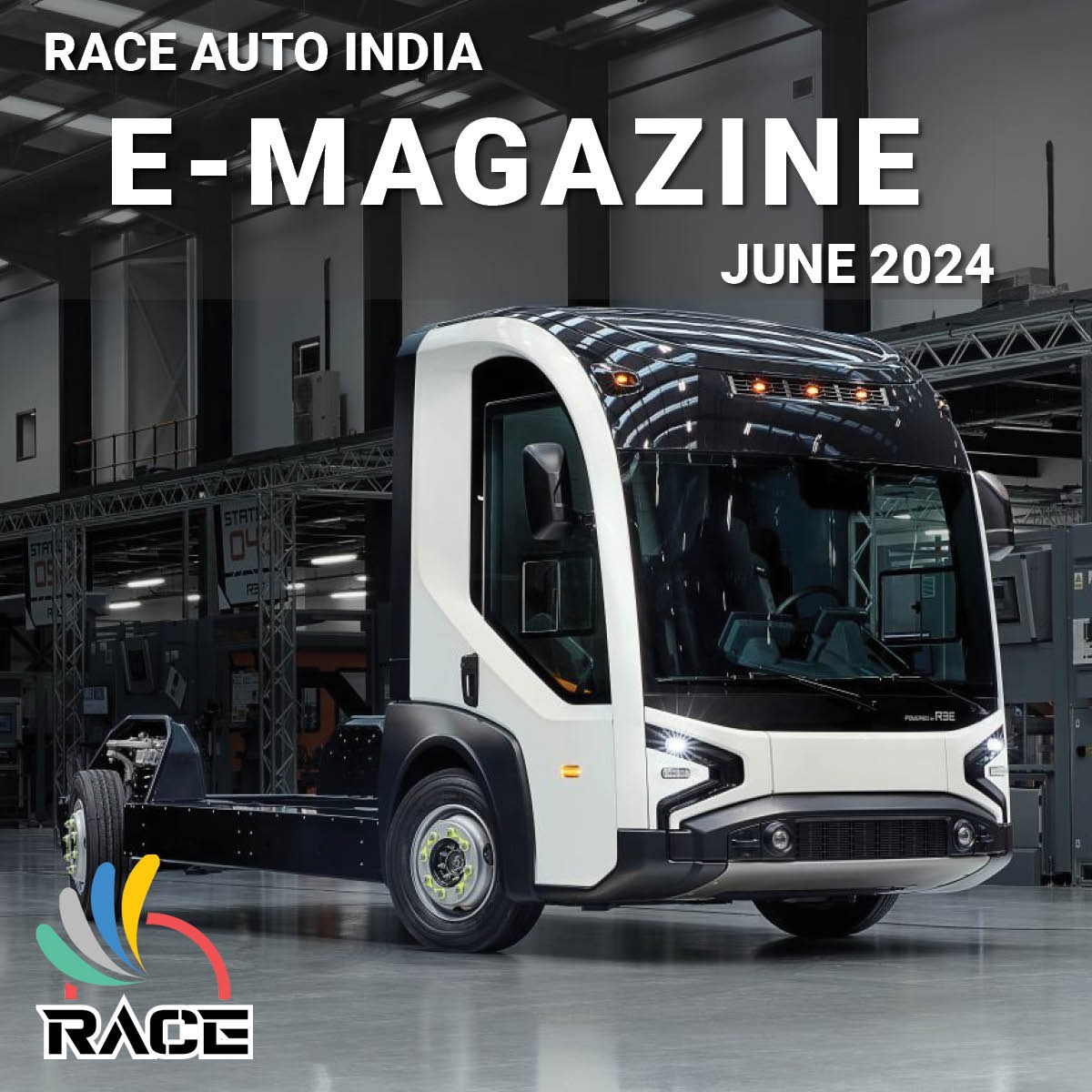Scania tests solar-powered hybrid truck
Additionally, they investigate how trucks can interact with the electricity grid and develop new simulations of what will occur if multiple trucks similar to this one are connected to the grid.

Södertälje, Sweden- Scania AB., Uppsala University, Eksjö Maskin & Truck, Midsummer, Ernsts Express, and Dalakraft collaborated on a two-year research project that resulted in a unique hybrid truck with a solar panel-covered trailer that is currently being tested on public highways. Because the truck produces its own energy, the solar energy greatly lowers operating expenses and regional emissions.
Stas Krupenia, the Head of the Research Office at Scania, stated that Scania's purpose is to promote the transition towards a sustainable transport system. He noted that solar panels have never been employed to generate energy for a truck's powertrain in a manner similar to their collaboration. He pointed out that this natural energy source has the potential to considerably reduce emissions within the transport sector. Mr. Krupenia expressed his enthusiasm for being at the forefront of the development of the next generation of trucks.
The truck is utilized in a study effort to examine the solar energy produced and the degree to which the solar panels reduce carbon emissions. The scientists created innovative, powerful, and light solar panels for trucks. Additionally, they investigate how trucks can interact with the electricity grid and develop new simulations of what will occur if multiple trucks similar to this one are connected to the grid.
Erik Johansson, Project Manager and Professor of physical chemistry at Uppsala University, remarked that the project is an exciting collaboration between academia and industry aimed at reducing the climate impact associated with truck transports. He expressed anticipation that the outcomes derived from this distinctive truck would be of significant interest.
A house outfitted with comparable-sized solar panels would be comparable to the 18-metre trailer of the truck, which is almost entirely covered in solar panels. The hybrid truck may go up to 5.000 kilometers each year in Sweden thanks to the solar energy. When compared to Swedish conditions, the vehicle may double its solar energy capacity and, thus, its driving range in nations like Spain with longer sun exposure.
Additionally, research is being done on novel, portable tandem solar cells that combine Midsummer's solar cells and contemporary perovskite solar cells. These allow for a more effective conversion of sunlight into power. In comparison to the energy now produced by the panels, such a system might increase solar energy production by twofold.
Erik Olsson, the Head of Corporate Development at Midsummer, mentioned that their solar panels excel in applications aimed at enhancing the sustainability of commercial vehicles. He emphasized that there is substantial potential for reducing emissions from heavy vehicles through electrification. Mr. Olsson explained that the use of electricity generated by solar panels would lead to fuel and carbon emission savings. He further expressed their intention to become a dependable partner, emphasizing that this aspiration was made possible by their involvement in the groundbreaking project.
Daniel Sandh, the CEO of Eksjö Maskin & Truck, concurred by stating that fuel costs are currently on the rise for haulage companies. He added that any contributions they can make to reduce these expenses would have long-term benefits for society.
One part of the study involved assessing the impact of the charging on the electrical grid and the commercial viability of selling the surplus. Whether two-way pricing is possible is not entirely clear, and the law is ambiguous.
Now that the vehicle has been tested on public roads, the haulage company Ernsts Express AB will put it through its paces.
The CEO of Ernsts Express, Lars Evertsson, stated that the business as a whole has major difficulties, particularly with regard to fuel. He emphasized that the future lies in electrification via renewable energy. He emphasized the significance of being a part of it by pointing out that their green haulage company's involvement in this initiative makes it much more significant.
The solar-powered truck was developed as part of a research project backed by Vinnova, a federal agency for innovation, to develop cars with little negative influence on the environment. The car has a 560-horsepower plug-in hybrid. The 100 square meters of thin, light, and flexible solar panels on the 18-meter trailer are covered, with a maximum efficiency of 13,2 kWp (kilowatt peak). They are expected to generate 8,000 kilowatt hours (kWh) annually when utilized in Sweden. The batteries have a combined capacity of 300 kWh, with 100 kWh on the truck and 200 kWh on the trailer.


